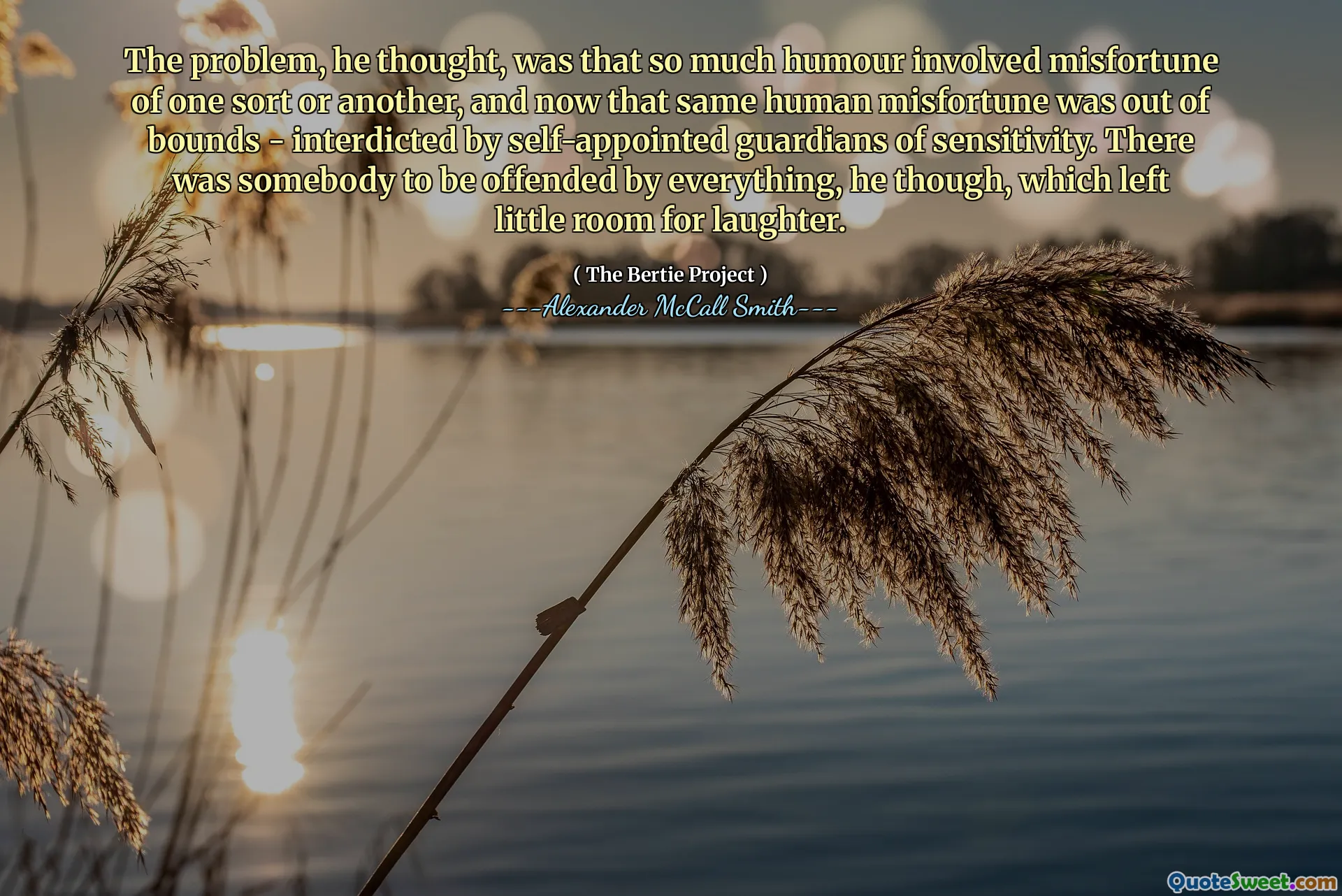
The problem, he thought, was that so much humour involved misfortune of one sort or another, and now that same human misfortune was out of bounds - interdicted by self-appointed guardians of sensitivity. There was somebody to be offended by everything, he though, which left little room for laughter.
The author reflects on the changing landscape of humor and its relationship with misfortune. He believes that much of humor is rooted in the unfortunate experiences of others, yet contemporary societal norms have made it increasingly difficult to joke about such topics. This shift is attributed to individuals who take it upon themselves to protect others' feelings, creating an environment where everyone seems to have something they can be offended by.
This landscape, he feels, stifles the potential for laughter as it dampens the openness needed to explore comedic subjects. He suggests that the plethora of sensitivities present today leaves little space for light-heartedness, ultimately challenging the traditional role of humor in society. In essence, the pursuit of joy through comedy appears hindered by a hyper-focus on sensitivity, which can overshadow the very essence of humor itself.







